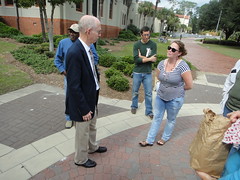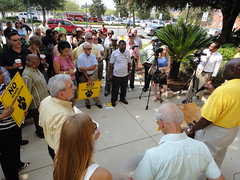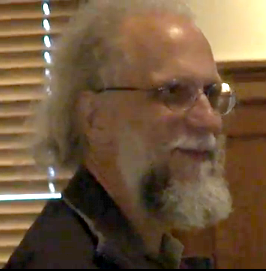 Henry Calhoun found VSU Interim President Dr. Louis Levy,
who came over to the Occupy Valdosta meeting 27 October.
Erin Hurley invited him to come to the
mid-November Teach-In.
He replied:
Henry Calhoun found VSU Interim President Dr. Louis Levy,
who came over to the Occupy Valdosta meeting 27 October.
Erin Hurley invited him to come to the
mid-November Teach-In.
He replied:
…as long as it’s legal and non-obstructive in terms of people getting in and out of buildings. We tend to promote free speech. And if we don’t, we’ll pay the price for it later.He thanked Erin for the invitation.…
We actually encourage free discussion and debate. Besides, I’m a sociologist. We can take what everyone knows and put them into four different kinds of perspectives and lenses just to do battle with each other.
VSU students, staff, and faculty who want their next president to hold positions like that on free speech might want to get involved with selection of the next VSU president.
Here’s the video:
We tend to promote free speech.
Information and Organization,
General Assembly, Occupy Valdosta (OV),
Valdosta, Lowndes County, Georgia, 27 October 2011.
Videos by John S. Quarterman for LAKE, the Lowndes Area Knowledge Exchange.
-jsq






 For a year I’ve been asking for a list of jobs attracted by the
Authority. We welcome your marketing expertise so we’ll know
the Authority’s successes!
For a year I’ve been asking for a list of jobs attracted by the
Authority. We welcome your marketing expertise so we’ll know
the Authority’s successes!


